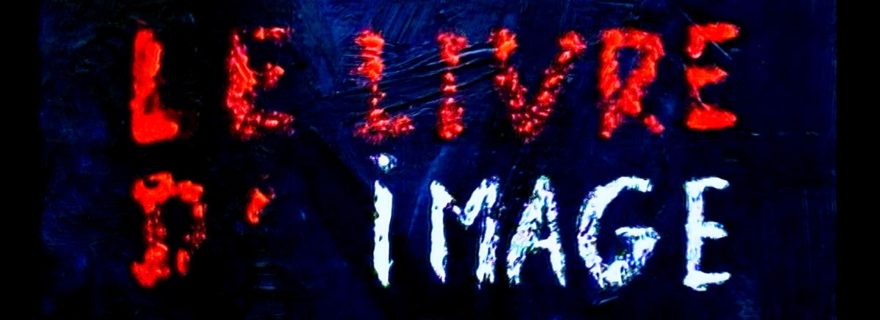'The Image Book'
Movie Rating:
2.5
For a period in the mid-1960s, the name Jean-Luc Godard conveyed a god-like figure in French cinema. A former critic who turned the film world upside down with his wild editing style, crisp dialogue and jazzy plotting, Godard helped power much of the Nouvelle Vague, taking the best of American and European cinema to make movies that were both artistically impressive and audience engaging.
It’s a highly simplistic read, but following the upheavals in 1968, the director changed his output, striving for more and more experimental avenues and crafting films that were seriously divisive. For those in his congregation, they were pieces of art to be studied with Talmudic precision. For others, they were mere masturbatory blatherings by an artist isolated from an audience he once served, eschewing coherence in favor of esoterica and half-baked, half-understood philosophizing.
At 87-years-old, it’s worth applauding anything coming from such an icon, but the pleasant surprise for this critic deeply cynical about his output from the last few decades is that somehow, implausibly, ‘The Image Book’ kind of works. Sure, it’s obnoxious in the way many of his late-career movies are – a blend of lo-fi video and seizure-inducing editing coupled with a raspy, meandering voiceover that’s purposely left only partially translated by subtitles. However, drawing on other, truly exceptional works like ‘Citizen Kane’ or ‘Jaws’ rather than some of his hastily assembled drama pieces allows Godard’s central ideas to shine.
In terms of idea, it’s a mixed bag. A decidedly “Orientalist” take on Arabia is laid out, peppered with some images to remind us of Godard’s often-downplayed anti-Semitic commentary. In fact, in some ways this can be considered a not-so-oblique admiring take on terrorism as a vehicle for political change. That’s no small thing for a filmmaker who once shut down the very Cannes Film Festival where he’s so unabashedly celebrated these days.
If you’re going to accept all that on face value and take Godard on his own murky terms, ‘The Image Book’ does what few of his recent films do – it entertains. The movie even has a few amusing bits thrown in – a Michael Bay film, for one! – that makes the parsing of his references a kind of game.
My cynicism could take a different turn if I made the assumption that in fact this was a wild assembly by one of his editors who simply recorded Godard’s rant and had the auteur sign off on the whole thing without taking a glance. Whatever the case, I’ll take a load of these kind of “Story of Film” mashups over the dreary, annoying and trite elements he’d delivered in his last salvo, ‘Goodbye to Language‘.
That’s perhaps faint praise, but if you’re going to stomach some experimentation, let it at least be provocative rather than pedantic, exuberant in style rather than weaponized incoherence. I don’t really care for much of what Godard has to say, but this film at least has him saying something, using the tools of cinema to reflect upon itself, and in so doing crafting one of his most (dare I say it) accessible works in decades.





